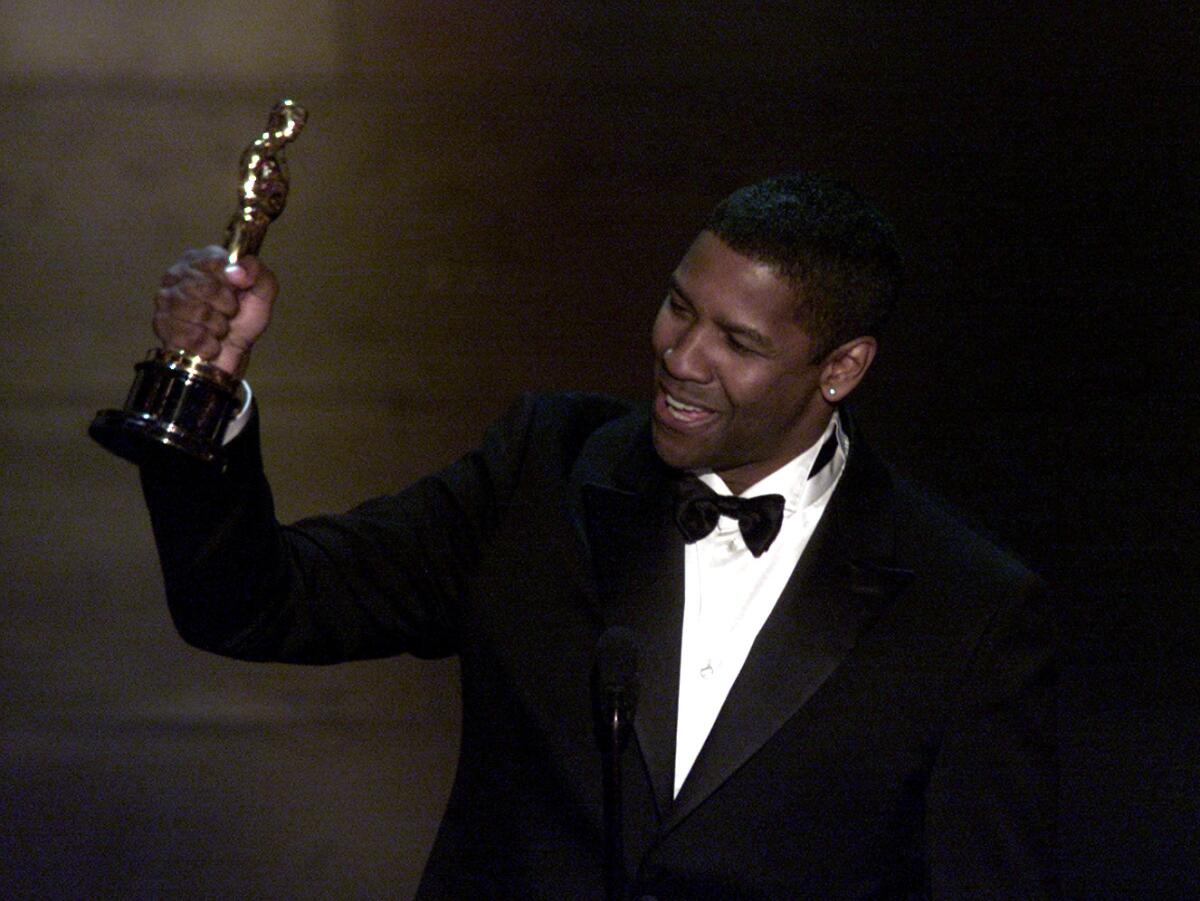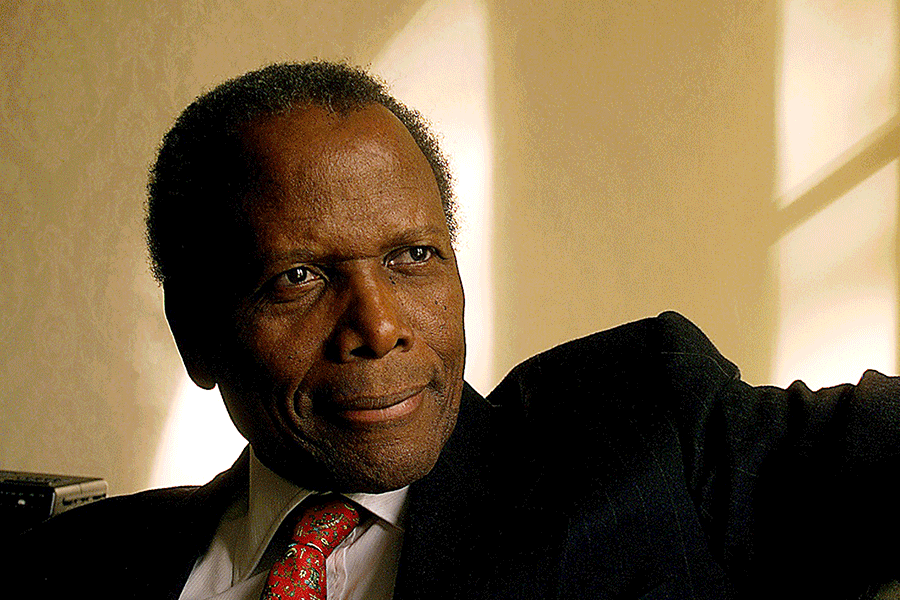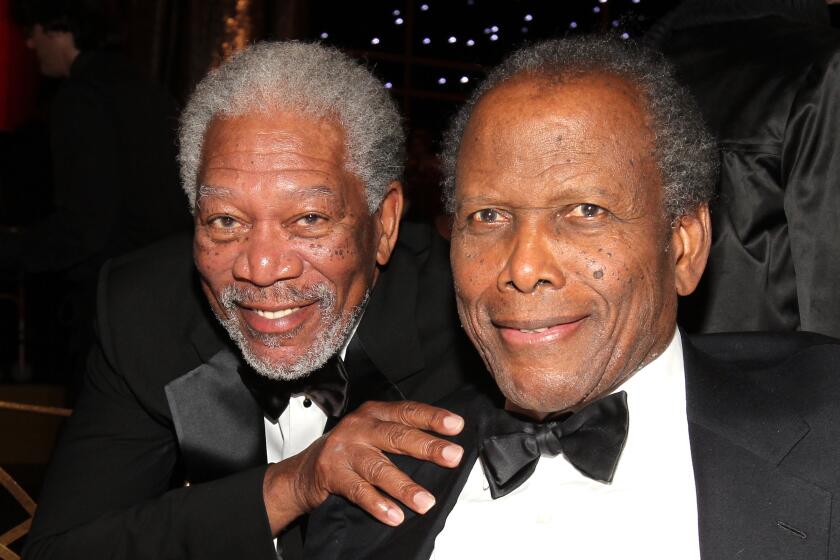Why Sidney Poitier felt indebted to Denzel Washington. And the feeling was mutual

When Denzel Washington took the stage at the Kodak Theater on March 24, 2002, midway through the Academy Awards to introduce Sidney Poitier, he knew the moment was pregnant with significance.
Not only was Washington paying tribute to a man whose footsteps he had long been following, as Poitier received his honorary Oscar in recognition of his trailblazing career. But with his own nomination that night for the gritty crime thriller “Training Day,” Washington was poised to follow Poitier as only the second Black person to win the lead actor prize.
“Before Sidney, African American actors had to take supporting roles in major studio films that were easy to cut out in certain parts of the country,” Washington, then 47, told the audience before bringing Poitier to the stage. “But you couldn’t cut Sidney Poitier out of a Sidney Poitier picture. He was the reason a movie got made: the first solo, above-the-title African American movie star. He was unique.”
Receiving his Oscar after a long and warm standing ovation, Poitier shared the honor with those who had supported him throughout his career.

“I arrived in Hollywood at the age of 22 in a time different than today’s, a time in which the odds against my standing here tonight 53 years later would not have fallen in my favor,” Poitier said. “Back then, no rules had been established for where I was hoping to go, no pathway left in evidence for me to trace, no custom for me to follow.
”Yet here I am this evening at the end of a journey that in 1949 would have been considered almost impossible and, in fact, might never have been set in motion were there not an untold number of courageous, unselfish choices made by a handful of visionary American filmmakers, directors, writers and producers, each with a strong sense of citizenship responsibility to the times in which they lived, each unafraid to permit their art to reflect their views and values, ethical and moral, and moreover acknowledge them as their own.”
Sidney Poitier, who made history as the first Black man to win an Oscar for lead actor and who starred in ‘Guess Who’s Coming to Dinner,’ has died.
Later that evening, as the ceremony neared its climax, Julia Roberts opened the envelope for the lead actor Oscar and read Washington’s name, making him the first Black actor to win the prize in 38 years, since Poitier’s historic 1964 win for his performance in “Lilies of the Field.”
Accepting the award, Washington — who had won the supporting actor Oscar more than a decade earlier for his 1989 Civil War drama “Glory” — held it up with a smile toward the box where Poitier was sitting.

“For 40 years I’ve been chasing Sidney — they finally give it to me and what do they do? They give it to him the same night,” Washington said with a self-deprecating laugh. “I’ll always be chasing you, Sidney. I’ll always be following in your footsteps. There’s nothing I would rather do, sir.”
Just moments later, history would be made yet again, as Halle Berry became the first Black woman to win the lead actress award for her turn in the drama “Monster’s Ball.”
Years later, in 2014, Poitier spoke in an interview of the remarkable synchronicity of that evening — and of the meaning of Washington’s words.
“I was proud obviously but I was grateful,” he said. “He had taken the concept of African Americans in films to a place where I couldn’t, I didn’t, and he has taken it there with the same kind of integrity that I tried to do and to articulate. So I thank him for that. He helped me that evening to a closing of my artistic life. He put the button on it for me. And I’m indebted to him.”
Morgan Freeman, Viola Davis and former President Obama are among the many saluting the legacy of pioneering actor Sidney Poitier, who has died at 94.
More to Read
Only good movies
Get the Indie Focus newsletter, Mark Olsen's weekly guide to the world of cinema.
You may occasionally receive promotional content from the Los Angeles Times.












